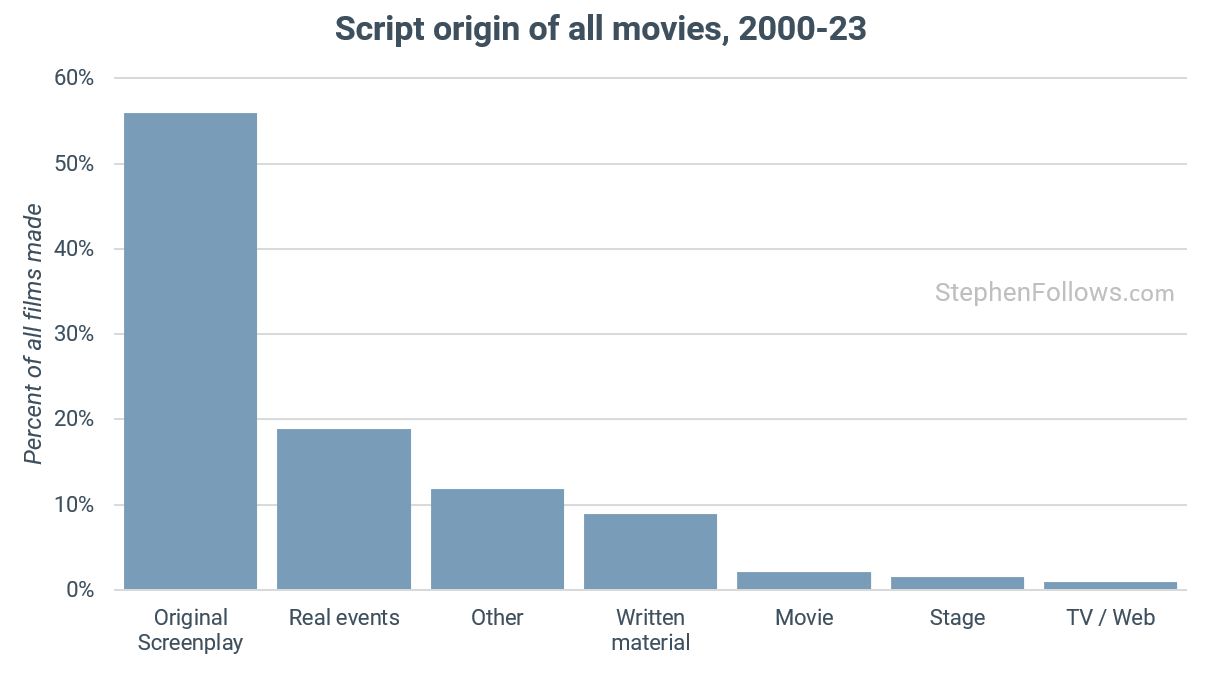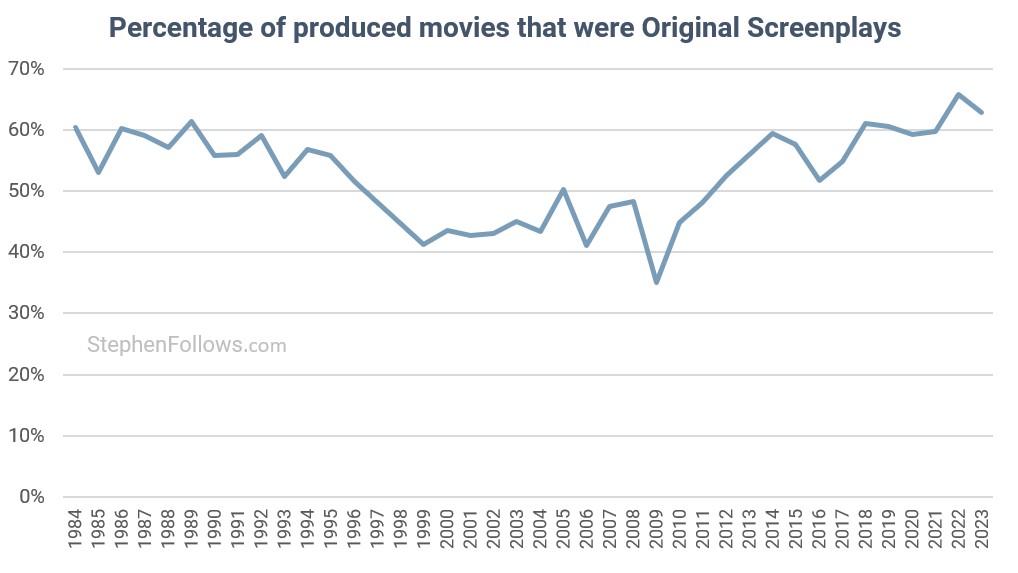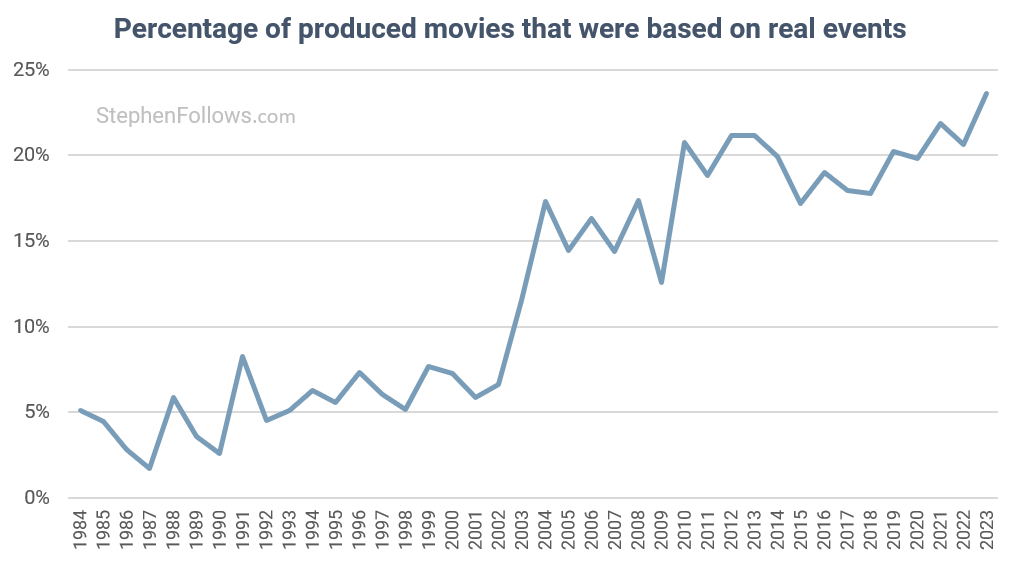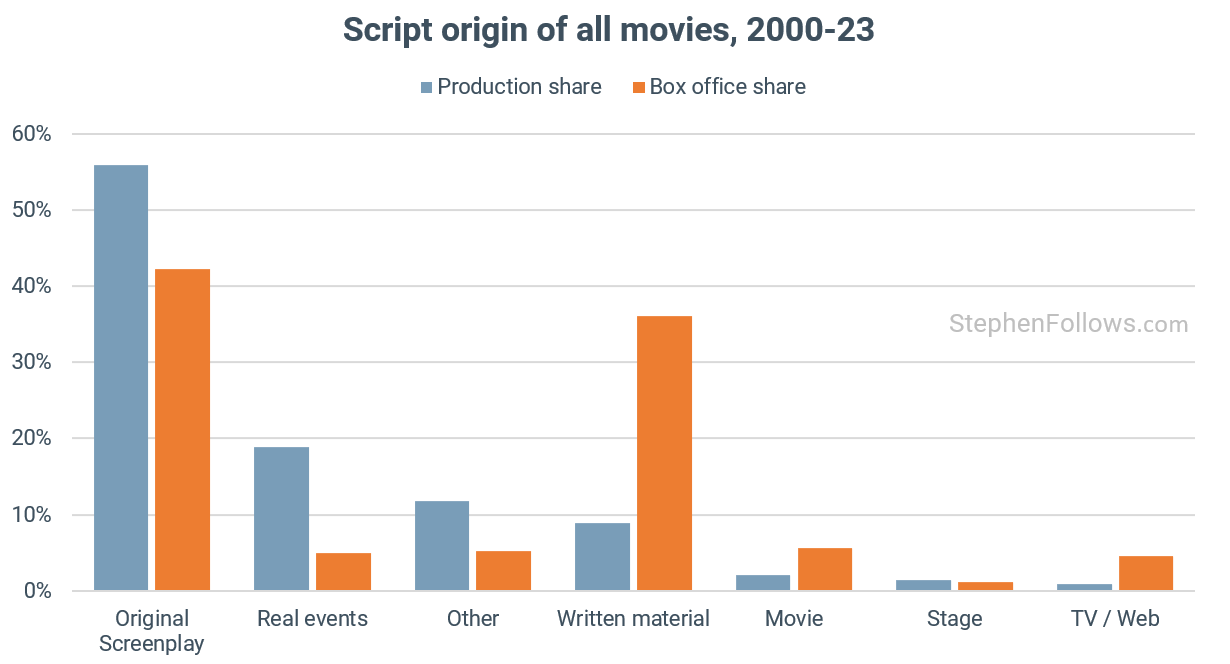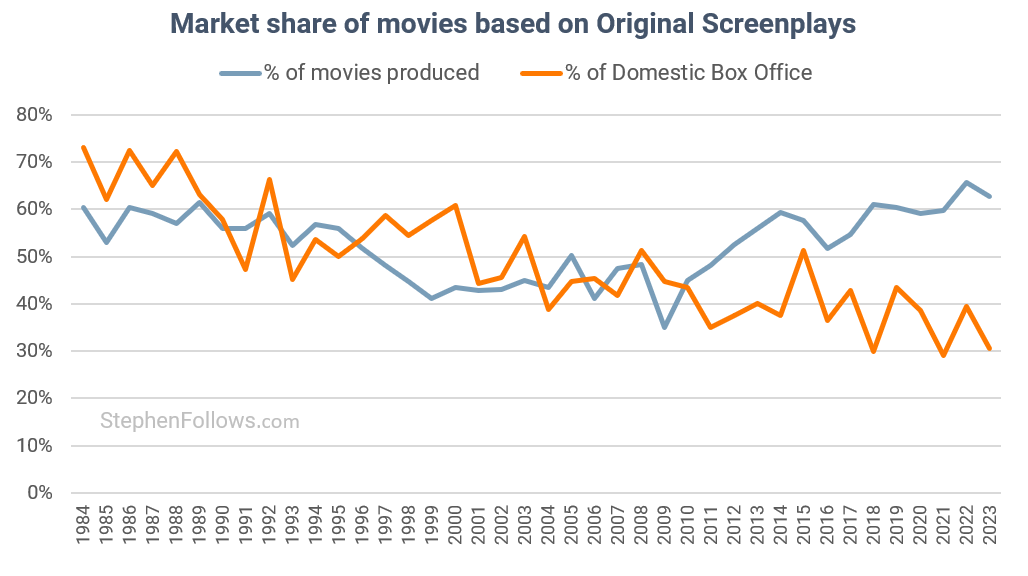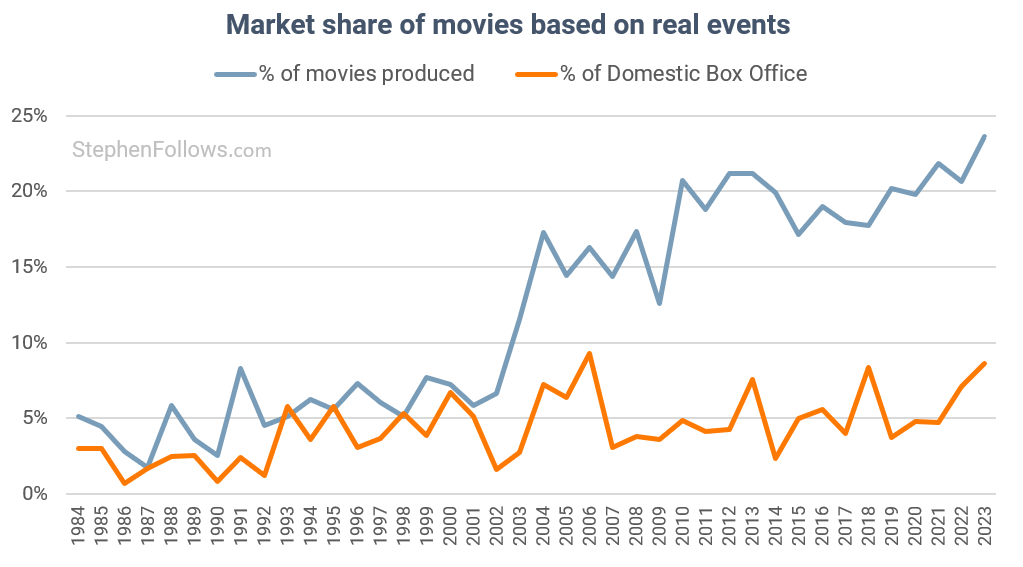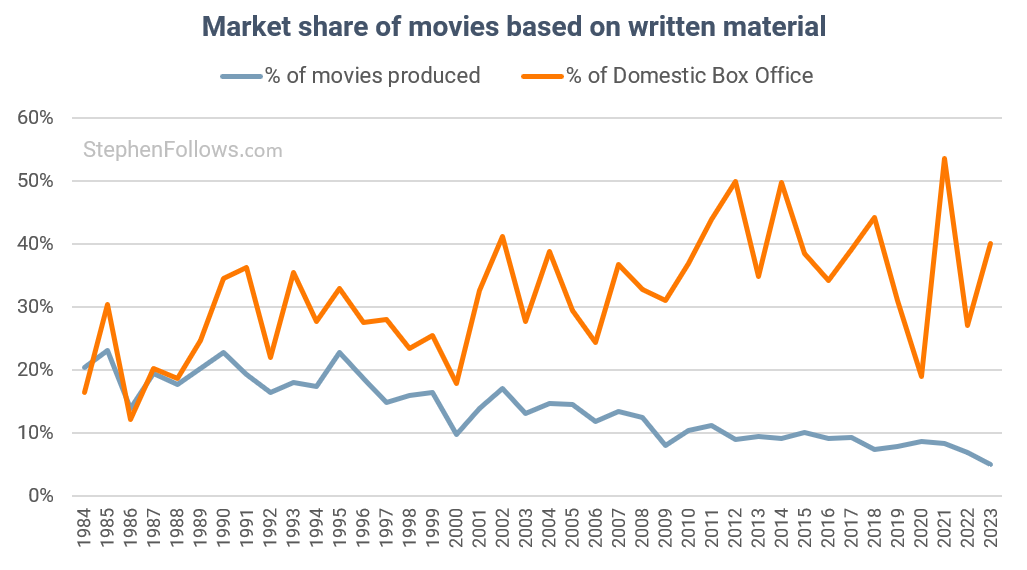Are movies becoming more derivative?
The data says originality isn’t dying but its role in cinema is quietly shrinking
With Mission: Impossible – Final Reckoning landing in cinemas this week, it seems like the perfect time to revisit a question I get asked constantly: why don’t modern movies feel as original as they used to?
I turned to the data on almost 60,000 movies to find out where their scripts came from.
We have to start by defining terms. When I say a film is an 'Original' movie, I am purely referring to the provenance of the script. There is an adjacent topic about how unoriginal movies can be despite being 'Original Screenplays' (I'm lookin' at you, Rebel Moon), but today, we're focusing on whether the filmmakers had to license a preexisting piece of work in order to get their film to market.
Where do movies come from?
This may surprise some, but since 2000, just over half of all movies released have been original screenplays.
The most common source for adapted screenplays was real-life events, accounting for almost a fifth of movies made between 2000 and 2023. (Typically, in these cases, the filmmakers will have paid for the rights to a nonfiction book or two that covered those events, but we will classify that as 'based on real-life events' in this analysis.)
Other sources include fictional books/articles (8.9%), previous movies (11.8%), stage productions (including plays, musicals, and dance performances) (1.5%), and TV/Web shows (0.9%). In the chart below, 'Other' includes myths, legends, poems, songs, games, toys, and more.
How has this changed over the years?
Forty years ago, about the same proportion of movies being made were original screenplays as they are today. That’s quite surprising, both because I assume that many people expected it to be lower in recent years, but also because little stays the same in the film industry over such a long period of time.
But when we look at a time series by year, we can see that it hadn't plateaued. During the late 1990s and 2000s, original screenplays declined markedly and only rose again in the 2010s.
The story of movies based on real-life events could not be more different. Here, we see a steady rise over the same period, from one in twenty movies in the 1980s to almost one in four in the 2020s.
This coincides with growing demand for true crime, social justice narratives, and prestige biopics. In the wake of the 2008 financial crisis, there was a surge in scripted films about real-world systems and breakdowns (Margin Call, Too Big To Fail, The Big Short). And streaming platforms took it even further, building entire brands around true story formats.
Why does this feel... off?
At this point, you may be wondering why, instinctively this feels different to what you were expecting or feel you've noticed at the cinemas.
That's because we've been looking purely at the number of movies made. But not all movies are created equal. The bigger a movie is, the more likely it is to grab your attention and be an adaptation.
As the chart below shows, original movies take a disproportionality smaller percentage of the box office than they do of the production figures. While 55.9% of movies made during 2000–23 were original screenplays, together they only account for 42.3% of the box office takings.
So let's go through the same charts we saw previously, but add on the box office share and see if this makes more instinctive sense.
While the number of movies based on original screenplays has been increasing since the late 2000s, their box office share has continued to fall. In 1984, 73% of the box office were original screenplays, whereas forty years later in 2023, that figure was just 30.6%. And that's despite their production share being similar (i.e. 60.4% vs 55.9%).
The story behind movies based on real-life events also shifts when we take into account the box office. While there has been a big boom in such movies being made, they haven't made the same level of impact on the financial side of the industry.
We'll end by looking at the production and performance of movies based on written material. This is the inverse of what we've just seen with 'real-life movies' in that their production has decreased but their box office market share has grown.
Notes
The core of today's data came from Opus Data / The-Numbers, with additional data from IMDb, OMDb, Wikipedia, and my own datasets. The hard work of determining the origin of each movie was done by the talented folks at Opus Data.
It covers 58,900 feature films, released in the US between 1974 and 2023, inclusive. Box office here refers to the Domestic Box Office, i.e. the US and Canada.
Epilogue
There is a deeper conversation to be had around the idea of originality.
Avatar (2009) is officially an 'Original Screenplay', but I think most viewers would concede it doesn't contain much we've not seen many, many times before.
On the other end, The Dark Knight (2008) is a sequel to a reboot of a movie of a comic, but its script doesn't suffer from this convoluted route to the screen.



